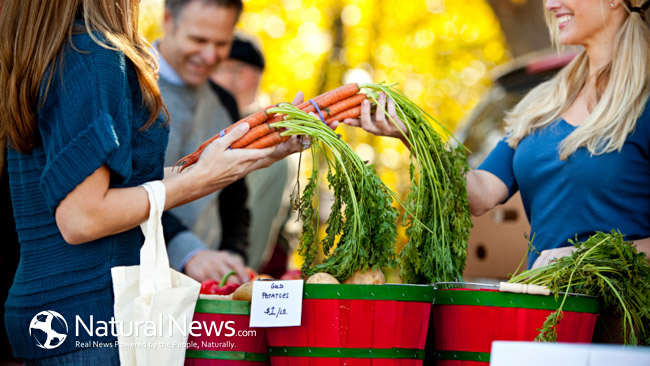When it comes to the foods we choose to purchase, particularly those that are fresh, we are presented with a variety of choices. More and more we are hearing about organic and farm raised produce and meats. Both the terms “organic” and “farm raised” refer to how the crop or animal has been raised by the farmer. It is important to know the truth about what you are buying based on what labels say.
Organic
For a food to be Certified Organic by the USDA (the agency that regulates these items), certain standards must be met. These standards are included in the policies created by the National Organic Program. Any farmer can uphold organic practices, but meeting the requirements for labeling has its clout. When you buy something organic, you are assured no synthetic chemicals, GMOS’s or antibiotics can be found in them.
Having your products organically certified can potentially help farmers protect natural resources, support the local economy, have premium prices for what they sell, and possibly receive additional funding from local governments and nonprofits. The cost of organic certification is reflected in the sale price. The fertilizers are much more expensive. If the animal is 100% grass fed, this means the animals live longer and require longer care. It can be hard to purchase products in bulk and to find machines such as meat processors that will work with you.
To achieve the organic certification, some of the standards include the following:
- only approved materials can be used
- natural resources and biodiversity are preserved
- no genetically modified ingredients
- organic food from non-organic food must be separated
- have outdoor access for animals so they can exercise their natural behaviors
- animal health and welfare are supported
- annual on-site inspections are upheld
Farm raised
This means the food was definitely raised on a farm. How the foods that are raised on that farm are not considered when using the term “farm-raised”. Knowing this information might require actually asking the farmer. Sometimes these farmers follow all the USDA organic standards but do not have the certification due to its expense. People who prefer farm raised may be because of the price, taste, or environmental consideration.
There are a few other terms you might encounter when it comes to food labels related to organic and farm raised. Certified Nutritionally Grown means the production follows the USDA’s guidelines and the animals are raised on pasture. Grassfed means the animals are only fed grass and forage, not grains. Animal Welfare Raised Approved means slaughter practices are followed, there is pasture access for all animals, and making the animals feel as though they are in their natural environmental state. Naturally Raised products can be difficult to define since there is no regulating agency. For example, a Cage Free Poultry label could mean not raised in a cage but that doesn’t mean they were raised outside. Finally, Produced Without Ractopamine refers to pork and lets buyers know the pigs weren’t given any of the drug ractopamine hydrochloride.
Healthy eating can have a different meaning for different people. For some, eating organic foods means healthy. To others, eating foods that aren’t processed means healthy. Some will only eat farm raised, while others never read labels. When we shop, there’s a market to meet each of our preferences. Besides, the true determinant is typically our taste buds anyways.



